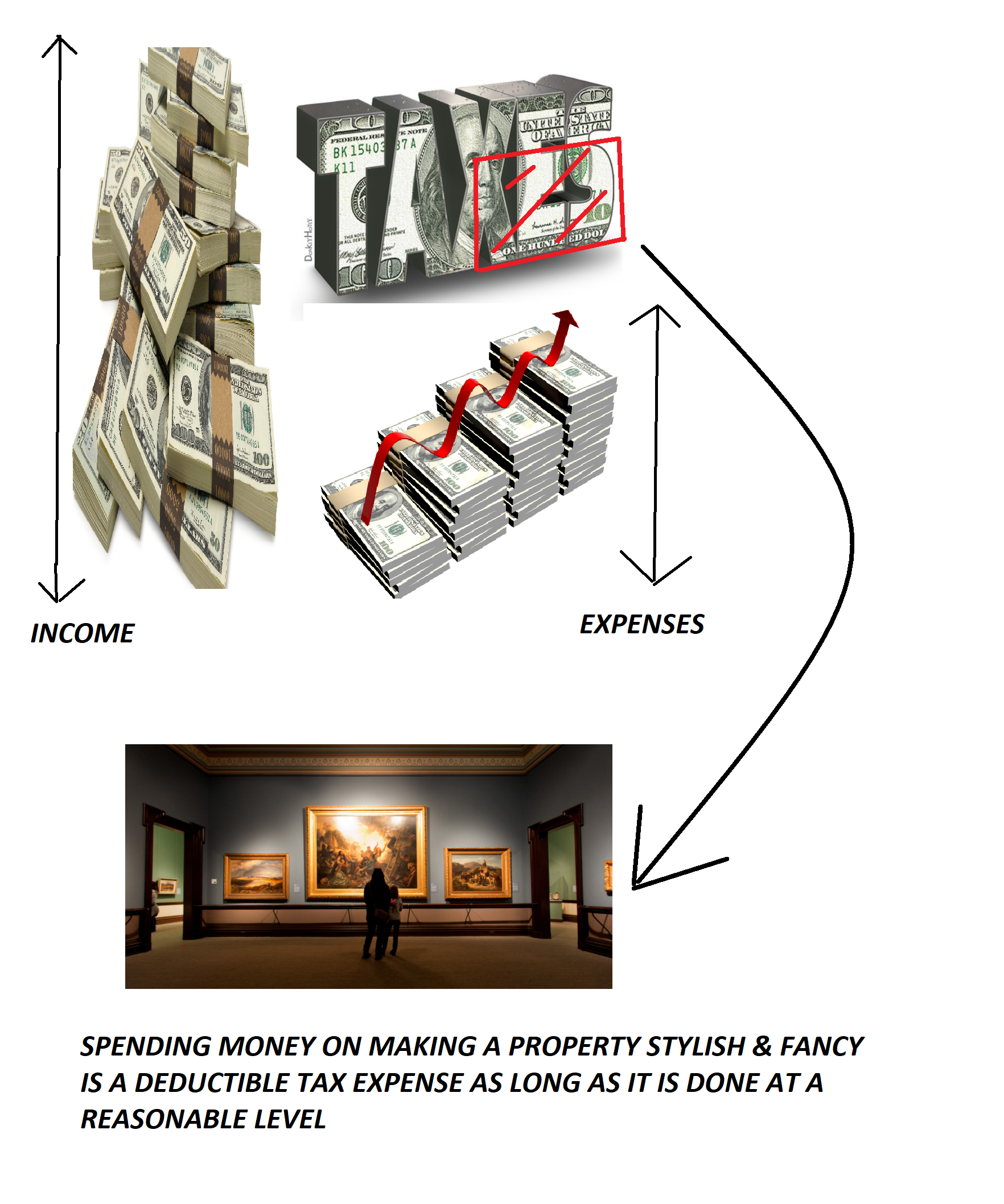IRC v Scottish and Newcasle, 1982 [1982] UKHL TC
Citation:IRC v Scottish and Newcasle, 1982 [1982] UKHL TC
Rule of thumb:Are expenses to make a property fancy tax-deductible? Even investments in assets that seem fancy can form a part of the meaning of ‘plant’ up to a certain point.
Background facts:
The facts of this case were that a the company owned a hotel in additional to its brewery business, and it spent a lot of money on decorations – specialist lights, artworks, sculptures etc.
Parties argued:
The tax authority argued that these expenses were not allowable. The organisation argued that some classy features were a deductible expense.
Judgment:
The Court held that these were expenses which increased the mood and atmosphere of the place, and they were deemed to be a valid investment in capital and plant. The Court also held that partition walls and a swimming pool would be considered to be plant.

Ratio-decidendi:
‘It naturally happens that as case follows case, and one extension leads to another, the meaning of the word gradually diverges from its natural or dictionary meaning’. No ordinary man, literate or semi-literate, would think that a horse, a swimming pool, moveable partitions, or even a dry dock was plant-yet each of these has been held to be so: so why not such equally improbable items as murals, or tapestries, or chandeliers? ... There is no universal formula which can solve these puzzles. In the end each case must be resolved, in my opinion, by considering carefully the nature of the particular trade being carried on, and the relation of the expenditure to the promotion of the trade. I do not think that the court should shrink, as a backstop, from asking whether it can really be supposed that Parliament desired to encourage a particular expenditure out of, in effect, taxpayers’ money, and perhaps ultimately, in extreme cases, to say that this is too much to stomach.’ Lord Wilberforce.
Important obiter-dictum:
When referring to the definition of a legal term then a legal dictionary has to be used, because the common dictionary meaning of a word can be different from the legal meaning of the word.
’It naturally happens that as case follows case, and one extension leads to another, the meaning of the word gradually diverges from its natural or dictionary meaning’. Lord Wilberforce
Warning: This is not professional legal advice. This is not professional legal education advice. Please obtain professional guidance before embarking on any legal course of action. This is just an interpretation of a Judgment by persons of legal insight & varying levels of legal specialism, experience & expertise. Please read the Judgment yourself and form your own interpretation of it with professional assistance.

